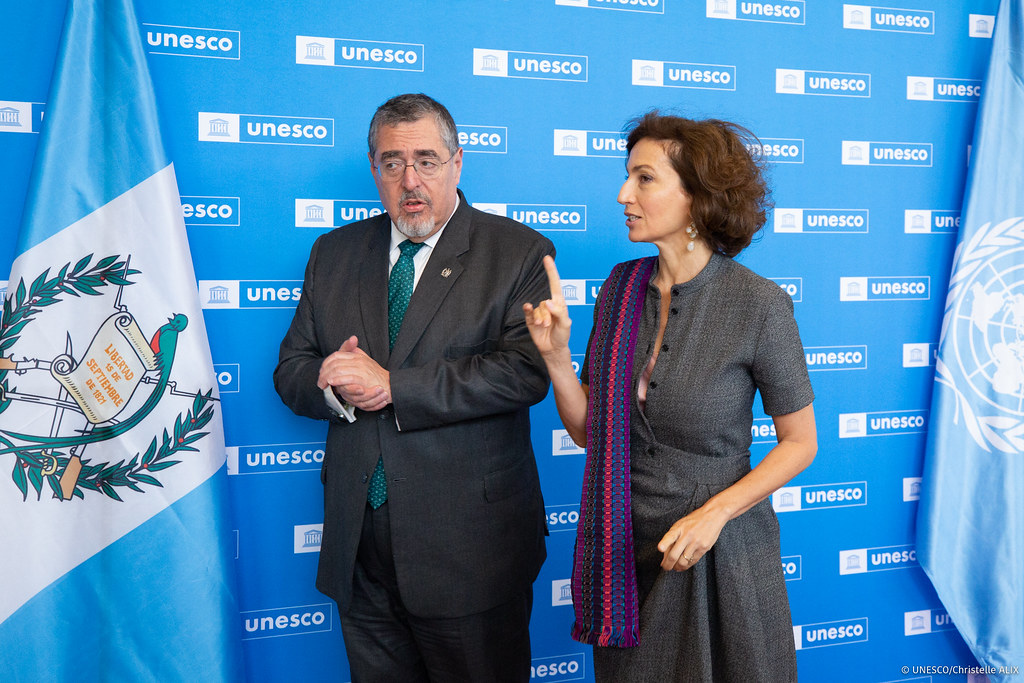
Bernardo Arévalo was sworn in as Guatemala’s new President on the 15th of January 2024, leading his Semilla Party into power. His arrival as a centre-left, anti-corruption crusader is welcomed given the nation’s history of being dominated by corrupt, right-wing leaders. His victory represents a direct challenge to the extreme conservative establishment in Guatemala, characterized by retrograde politicians, wealthy propertied scions, rightist big businesses, the army, and the Catholic Church. Alarmed by Arévalo’s victory, these groups coalesced in an attempt to keep him out of power, aiming to raid election offices, seize ballot boxes, and lodge criminal charges against him.
US President Joe Biden, predicting these consequences, acted in support of the new President. He issued a statement lauding Arévalo’s victory and urging citizens to respect the election results, an action supported by the US State Department, the European Union, and the Organization of American States. However, the persistence of right-wing resistance following this statement led the US State Department cancelled the visas of nearly 300 Guatemalans, a decree that covered two-thirds of the members of Congress. Protests by Indigenous groups followed, and, under this pressure, the opposition capitulated.
For older Guatemalans, Arévalo’s presidency is further welcomed, being the son of popular former Guatemalan President Juan José Arévalo, who was in power between 1945 -1950. President Juan José Arévalo is widely credited for implementing fundamental protections for workers as well as spaces for the country’s indigenous population, a population that has suffered greatly throughout Guatemala’s history.
Unsurprisingly, Guatemala’s history of far-right leadership and the prominence of Catholicism, has been accompanied by much anti-abortion and anti-homosexuality legislation. To provide a flavour, in 2022, Guatemala passed a new bill which toughened its legislation against abortion whilst also declaring the LGBTQ+ community “incongruent with Christian morality”. The arrival of Arévalo as a centre-left, progressive politician challenges these views with his party and its members willing to change abortion laws and celebrate gay marriage and diversity. For many traditional pro-lifers in Guatemala, such as Elena Gaytán, her new President is providing cause for concern.
Guatemala remains one of the poorest nations in Latin America and the Caribbean, with corruption by government officials being an unfortunately common feature of Guatemalan politics. In the years prior to Arévalo’s election, Guatemala witnessed corruption scandals involving multi-million-dollar thefts from the public health services. With many struggling to meet their own needs in the first place, this corruption has widespread tangible impacts on the population. However, 2024 could be the dawn of a new Guatemala with the new President placing battling corruption at the top of his list of priorities. In an interview during the election, Arévalo vouched that he would ensure that the executive branch would cease to be the source of “that fundamental lubricant of the corrupt system”.
With his vision clearly defined, the President now needs to construct a strategy to achieve this while avoiding and overcoming his obstacles, of which there are several. The most problematic of these is Attorney General Consuelo Porras. Her office is pursuing multiple investigations on the President with the aim of prosecution. Arévalo’s problems with her started as soon as he won a spot on the Presidential run-off ballot when she attempted to suspend his party. Furthermore, her office intends to pursue allegations that the President encouraged a monthslong takeover of a public university by its students. She also intends to prove his party committed wrongdoing when it gathered petition signatures to form years earlier. Becoming Attorney General under a previous right-wing government, Porras’ term does not end until 2026, and with her defiant refusal to resign, despite both pressure from Arévalo and many citizen-led protests, she will continue to be a thorn in the side of the new President.
Importantly, it is uncertain how those who hold Guatemala’s real economic power, essentially the elites and drug traffickers, will respond when Arévalo attempts to dismantle their corrupt networks. He intends to bring back the prosecutors and judges who led the fight against corruption until Porras turned the justice system against them and effectively exiled them. Moreover, with few employment opportunities, poverty, deep structural problems and many Guatemalans leaving for the United States, the new President certainly has his work cut out.
Despite the challenges facing Arévalo, his premiership could be the dawn of a new, progressive Guatemala, and, maybe, the start of a transformation of Central America.
Image: UNESCO Headquarters Paris ‘Bernardo Arévalo de León, Président de la République du Guatemala’ // CC BY-NC-ND 2.0



Average Rating